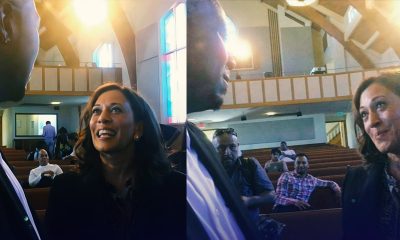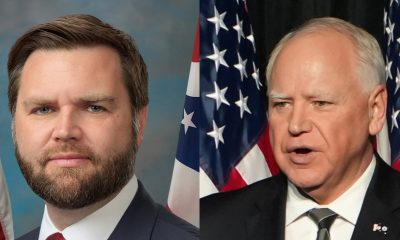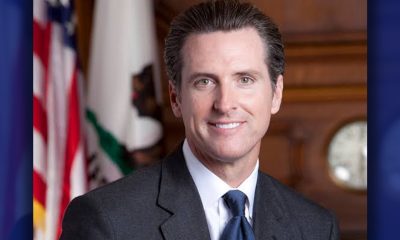World
Humanitarian Crisis Looms Large in Haiti as the Dominican Republic

Haitian Jaquenol Martinez shows a card that proves that he has worked in the Dominican sugar cane fields since 1963, while trying to apply for a temporary resident permit, in Santo Domingo, Dominican Republic, Monday, June 15, 2015. (AP Photo/Ezequiel Abiu Lopez)
By Tony Best
Special to the NNPA from the New York Carib News
As the international community raise the alarm about the “awful” impact of the Dominican Republic’s “inhumane” scheme to deport hundreds of thousands Haitians, calls for economic sanctions against the DR are gathering steam.
The calls are coming from dozens of Haitian immigrants elected to legislatures, the judiciary and municipal bodies in New York, Florida, Illinois, New Jersey and other parts of the country as well as from their supporters who believe a threat of tough economic sanction would help force the DR to recognize the pain the ejections were causing Haitians who were being uprooted from the only country they have known for several decades.
“Economic sanctions and the involvement of the private sector are important if we are going to stop this cruel and inhumane policy that will transform hundreds of thousands of people into stateless persons,” said New York State Assembly member, Rodneyse Bichotte, a Brooklyn Democrat and a driving force behind the campaign in the U.S. to halt the evictions. “We believe a reduction in investment flowing to the DR, a fall-off in tourisms and a slowdown in trade would bring the message home to the government in Santo Domingo that what it is going is wrong and must be stopped.”
By “we” Bichotte was referring to dozens of Haitians serving in state assemblies and senates, as judges, mayors and members of municipal councils. The “drive is attracting support outside of the Haitian and Caribbean immigrant communities,” said Bichotte.
In New York where three Haitian immigrants are members of the lower chamber of the legislature, the lawmakers have passed a resolution condemning “the actions of the Dominican Republic’s Constitution Court” which stripped hundreds of thousands of Haitians of their citizenship and blames Dominicans for committing human and civil rights violations,” said Bichotte. Two other Haitian members of the Assembly, Kimberley Jean-Pierre and Michaelle Solages are also backing the call for sanctions.
“We are all members of the National Haitian-American Elected Officials Network and we are determined to raise the concerns of institutions and individuals who can help stop this policy from hurting Haitians,” said Bichotte.
At the same time, Assemblyman Nick Perry, a Brooklyn Democrat, said that it was important that “influential voices join” the campaign to end the deportations.
“We want more done and more voices raised to end the evictions in the Dominican Republic,” said Perry, Chairman of the New York State Black, Puerto Rican, Hispanic and Legislative Caucus, a group of more than 50 law makers in Albany.
State Senator Kevin Parker said that he was “disappointed, appalled,” that the United Nations and Washington hadn’t acted more aggressively to exert pressure on the DR to end the deportations.
“The UN should have passed a resolution calling on its members to impose sanctions on the DR for what it is doing with Haitians many of whom were born in the DR or have lived there for decades contributing to the economic well-being of the country,” he said. “The Congress in Washington and the Obama Administration should also have spoken out forcibly on this matter. I find the silence stunning.”
Just last week, Ban Ki-Moon, UN Secretary-General, told Caribbean presidents and prime ministers at their summit in Barbados that he was worried about the deportations impact, describing them as a “matter of human rights and human dignity. I have discussed this with the President of the Dominican Republic and trust there will be further progress in resolving this matter.”
In Haiti, the country’s Prime Minister, Evans Paul described the return of 14,000 Haitians, many of them women and children in recent weeks was creating a humanitarian crisis in the Creole speaking country. Some of the Haitians were deported by Dominican Republic immigration authorities while others went back voluntarily, fearing that they would be deported.
Meanwhile, the Organization of American States in Washington is launching an investigation into the deportations, the policies which have led to the evictions and their impact on people.
The DR has agreed to cooperate with OAS investigation.
“We have nothing to hide because what we are doing is applying our laws on migration as every country in the world does and to do this we have done what was needed,” said Ramon Fadul, the Dominican Republic’s Minister of the Interior.
However, Human Rights Watch, a global human rights body charged that many of the Haitian deportees had been detained and then “shoved across the border” of the two countries.
Haiti and the DR share the island of Hispaniola.
It is estimated that as many as 500,000 people of Haitian descent live in the DR and at least 200,000 of them could end up being forcibly deported to a country they don’t know anything about and don’t speak its language.
Activism
COMMENTARY: Will a Dictator’s Loss Change Trump’s Tune?
What’s happened in Syria has the potential of reshaping the politics of the entire Middle East. The U.S. can’t afford to sit back and do nothing. Now is the time to exert peaceful, diplomatic influence on how Syria maintains stability and goes forward with a new democracy.

By Emil Guillermo
In our polarized country, half of America can’t wait, while many of us still wonder, “where’s Kamala?”
I hope President-elect Trump — who famously said during the campaign that he’d be a dictator on day one — eats his words.
Dictators aren’t doing so well these days.
Last weekend, the dictator Bashar al-Assad was run out of Syria and sought exile with his puppet master/dictator Vladimir Putin of Russia. In just about two weeks, a coalition of rebels applied enough pressure to end a family regime in Syria that lasted 50 years.
al-Assad’s wealthy family dictatorship plundered Syria and ruled in terror.
It sounds all too familiar to Filipino Americans, many of whom came to the U.S. fleeing the Philippine dictator Ferdinand Marcos.
al-Assad’s end was different from the Filipinos who forged a peaceful People Power movement that chased the Marcos family to Hawaii where they sought refuge from their U.S. puppet handlers.
But as in Manila, there was cheering on the streets of Syria. Men, women, and children. Christian, Muslims, different sects and ethnicities, all united against al-Assad.
al-Assad has been described as a genocidal narco-trafficking tyrant, whose friends were America’s biggest enemies, Iran, Hezbollah, and Russia, said Mouaz Moustafa, the executive director of the Syrian Emergency Task Force, on CNN.
Moustafa said it was amazing that there would be no more Russian airstrikes, no more al-Assad gulags torturing civilians. “To see good triumph over evil is an amazing thing,” he added.
But last weekend has some trickle down.
Consider that we are talking about al-Assad, the one Tulsi Gabbard consorted with and hyped to her colleagues when she was in Congress. Now Assad has been shamed into exile with his puppet master Russia, and Gabbard wants to be the U.S. director of national security? Given her wrongheaded judgment on al-Assad, can she be trusted with any national secrets?
It’s still not over in Syria, as now there will be a scramble to see what kind of governing democracy emerges.
Predictably, Donald Trump has said, “The United States should have nothing to do with it. This is not our fight. Let it play out. Do not get involved.”
Nouveau isolationism?
What’s happened in Syria has the potential of reshaping the politics of the entire Middle East. The U.S. can’t afford to sit back and do nothing. Now is the time to exert peaceful, diplomatic influence on how Syria maintains stability and goes forward with a new democracy.
Overall, the ouster of the dictator should give Trump pause.
If by nominating MAGA loyalists like Gabbard, Pete Hegseth and Kash Patel, Trump’s testing the evolution to strongman rule in the U.S., he should consider what happened before last weekend.
In South Korea, a weak president tried to declare martial law and was voted down by Parliament. That’s a faux strongman.
Let’s hope Trump learns a lesson from the week’s news.
The next president sets the tone for a politics that’s already toxic.
He needs to remember the joy in Syria this week when an autocrat was dumped in the name of freedom and democracy.
About the Author
Emil Guillermo is an award-winning Bay Area journalist. His commentaries are on YouTube.com/@emilamok1. Or join him at www.patreon.com/emilamok
Black History
Biden acknowledged America’s ‘Original Sin of Slavery,’ Pledged Infrastructure Dollars and Long-Term Financial Aid
“Our people lie at the heart of a deep and profound connection that forever binds Africa and the United States together. We remember the stolen men and women and children who were brought to our shores in chains and subjected to unimaginable cruelty,” Biden said in remarks at the National Museum of Slavery, which is built near the chapel where enslaved individuals were forcibly baptized before being sent to America. The museum was built on the property of Álvaro de Carvalho Matoso, one of the largest slave traders on the African coast.
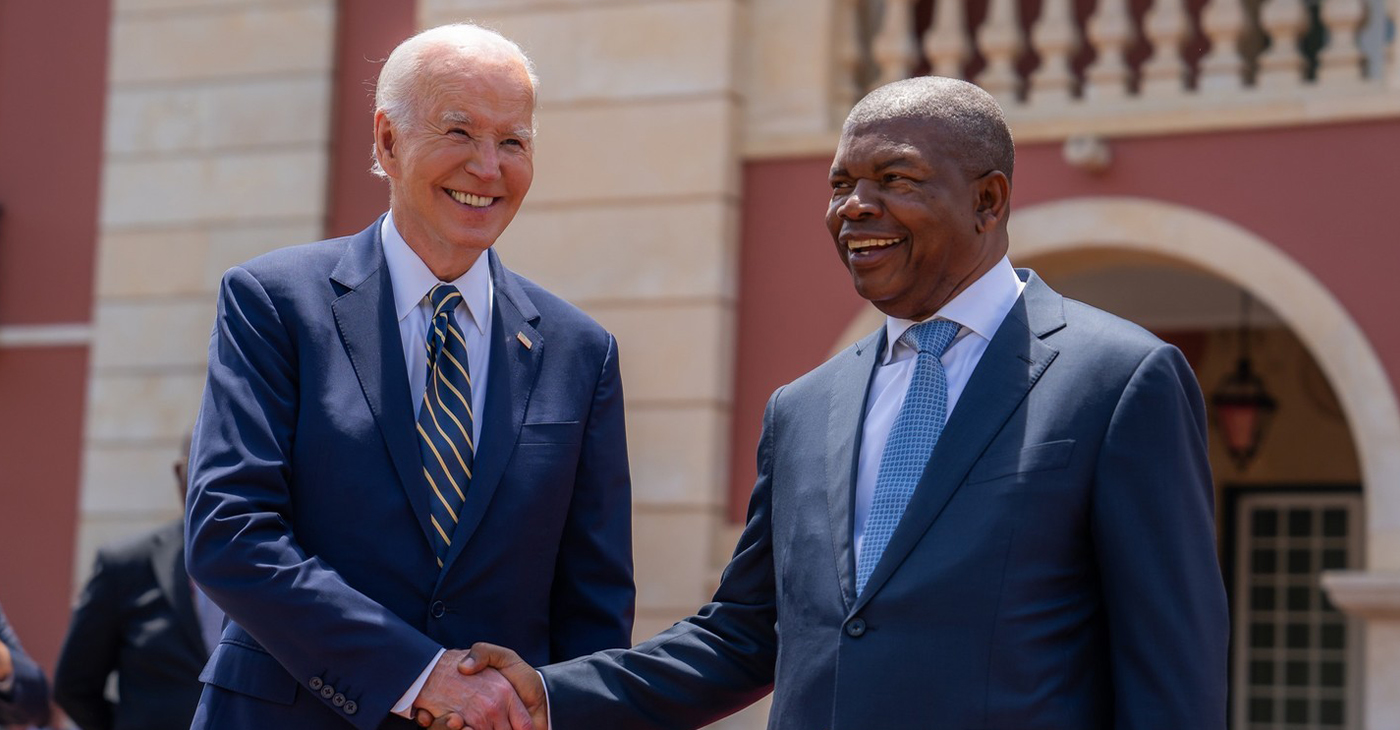
Will Biden’s aid for an above-the-ground Railroad help ease the pain for the African Americans’ Underground Railroad?
By Post Staff
And news dispatches from the Guardian, CNN and AP
When President Joe Biden went to Angola this week the purpose was ostensibly to advance the Lobito Corridor, an unfinished 800-mile railway project meant to facilitate the transfer of critical minerals from interior countries to western ports for exports.
But in a visit to the country’s slave museum, he acknowledged America’s dark past and its connection to Angola in the presence of three descendants of the first captives who arrived in Virginia from Angola in 1619.
The child of two of those captives — Antony and Isabella — was William Tucker, born around 1623. Three of his descendants were present when Biden spoke at the country’s slave museum and humbly acknowledged how the horrific history of slavery has connected the United States and Angola.
“While history can be hidden, it cannot and should not be erased. It should be faced. It’s our duty to face our history,” he said. “The good, the bad and the ugly. The whole truth. That’s what great nations do,” he said.
“It was the beginning of slavery in the United States. Cruel. Brutal. Dehumanizing. Our nation’s original sin. Original sin. One that’s haunted America and cast a long shadow ever since,” Biden spoke as he honored the Tucker family.
After introducing Wanda Tucker, Vincent Tucker and Carlita Tucker, he delivered a hopeful vision for the future in a major speech from the country that was the point of departure for millions of enslaved Africans.
(Wanda Tucker now serves as the faculty chair of psychology, philosophy and religious studies at Rio Salado College in Arizona.)
“Our people lie at the heart of a deep and profound connection that forever binds Africa and the United States together. We remember the stolen men and women and children who were brought to our shores in chains and subjected to unimaginable cruelty,” Biden said in remarks at the National Museum of Slavery, which is built near the chapel where enslaved individuals were forcibly baptized before being sent to America.
The museum was built on the property of Álvaro de Carvalho Matoso, one of the largest slave traders on the African coast.
Biden told the attendees that he’s proud to be the first president to visit Angola and that he’s “deeply optimistic” about the future relationship between the nation and the US.
“The story of Angola and the United States holds a lesson for the world. Two nations with a shared history, an evil of human bondage,” Biden said. “Two nations on the opposite sides of the Cold War, the defining struggle of the late part of the 20th century. And now, two nations standing shoulder to shoulder working together every day. It’s a reminder that no nation need be permanently the adversary of another.”
Biden’s trip aimed to highlight U.S. investments in Angola and the continent in the face of deepening Chinese influence in the region, as Beijing has poured hundreds of billions of dollars into Africa through its Belt and Road Initiative.
Biden took a swipe at China’s moves, without calling out the country by name, and argued the US presents a better alternative.
“The United States understands how we invest in Africa is as important as how much we invest,” Biden said.
“In too many places, 10 years after the so-called investment was made, workers are still coming home on a dirt road and without electricity, a village without a school, a city without a hospital, a country under crushing debt. We seek a better way, transparent, high standard, open access to investment that protects workers and the rule of law and the environment. It can be done and will be done,” the president said.
Biden’s speech comes during what likely could be his last trip abroad as president and as he seeks to deepen relationships with Angola and other African nations at a time when China has made significant inroads in the continent with hundreds of billions of dollars of infrastructure investments, far outpacing the U.S.
During his remarks, Biden touted U.S. efforts to expand its relationships across Africa, including billions of dollars in investments in Angola.
He also announced over $1 billion in new US humanitarian assistance for Africans who have been displaced by historic droughts across the continent.
“But we know African leaders and citizens are seeking more than just aid. You seek investment.
So, the United States is expanding its relationships all across Africa,” Biden said, adding later: “Moving from patrons to partners.”
Ahead of his remarks, the president also met with Angolan leaders, including young people at the museum.
Biden started his day with a bilateral meeting with Angolan President João Manuel Gonçalves Lourenço at the presidential palace in Luanda.
The two men discussed trade and infrastructure, including the US and Europe’s investment in the railroad. They also discussed mutual security interests as Angola has played a key mediating role in the conflict in the eastern Democratic Republic of the Congo.
In November, Angola announced their Incremental Production Decree of fiscal terms designed to enhance the commercial viability of developing oil and gas fields. The decree enhances the commercial viability of developing fields in mature blocks, underexplored areas and stranded resources, while encouraging exploration near existing infrastructure. The US Railroad infrastructure investments could play a major role in enabling increased recovery from producing fields and extending the lifespan of critical infrastructure, the decree is set to generate billions in offshore investments, create jobs and drive economic growth, solidifying Angola’s position as a leading oil and gas producer.
Activism
South African Solidarity Committee Hosts 31st Annual Celebration
“We’re all together for each other celebrating 31 years of building international solidarity between the people of the United States and South Africa toward the implementation of the 1955 Freedom Charter and 2030 Sustainable Development Goals,” said COSAS Operations Manager Nicole Richards.Located in Berkeley, COSAS is dedicated to the continuing struggle by the people of South Africa’s need for independence.
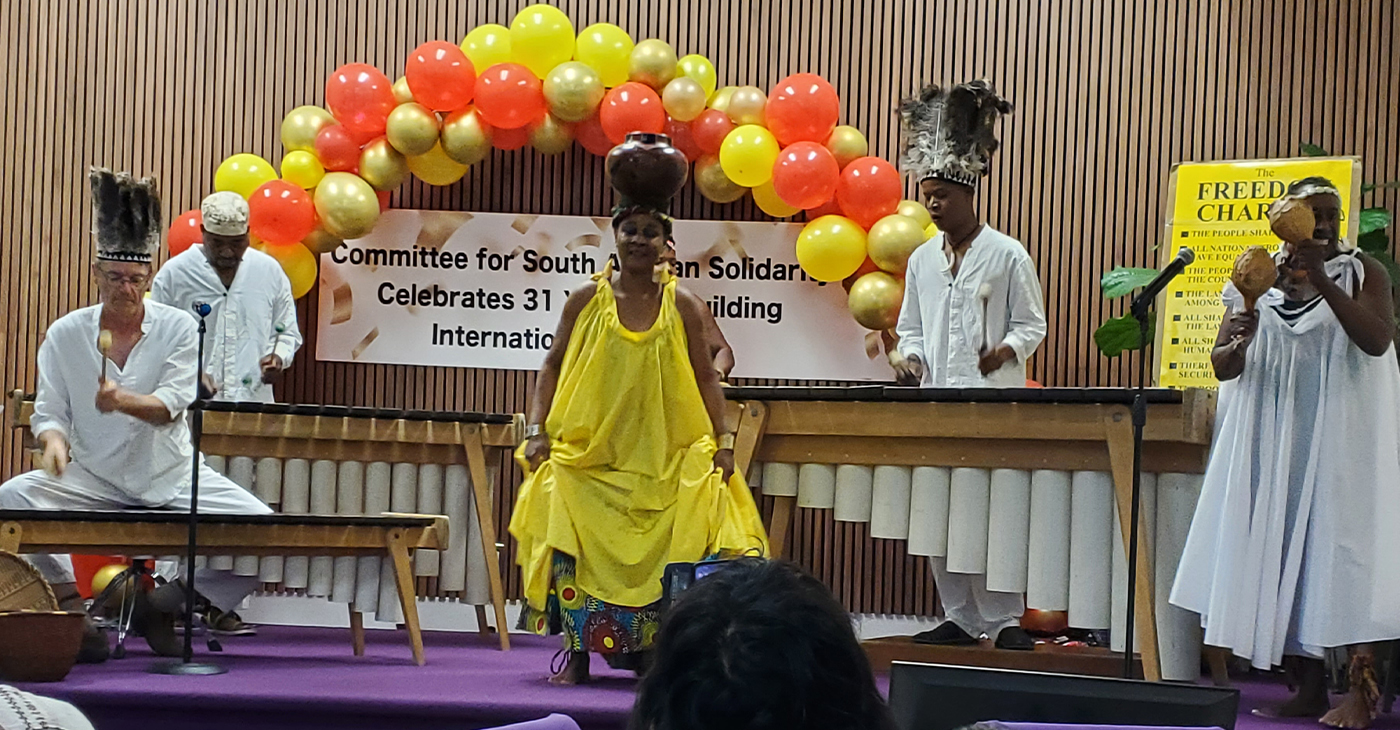
By Carla Thomas
The Committee of South African Solidarity (COSAS) celebrated its 31st anniversary on Saturday, Oct. 26 at the East Bay Church of Religious Science in Oakland.
Themed “Ubuntu,” a word in Zulu and Xhosa, which means “I am because we are,” the event brought together supporters and community members.
“We’re all together for each other celebrating 31 years of building international solidarity between the people of the United States and South Africa toward the implementation of the 1955 Freedom Charter and 2030 Sustainable Development Goals,” said COSAS Operations Manager Nicole Richards.
Located in Berkeley, COSAS is dedicated to the continuing struggle by the people of South Africa’s need for independence.
A soulful meal was prepared by Chef Rene Johnson and Blackberry Soul Catering along with live entertainment and speakers.
COSAS is an all-volunteer, private membership organization, made up of South Africans, Africans, students, professionals, clergy and others committed to building solidarity between the working people of the U.S. and the South African people still struggling for economic and political freedom.
Formed in 1993, the organization promotes the “real nature” of the changes and struggles taking place in South Africa and the African continent, according to Richards.
“COSAS counters ‘disinformation’ and ‘misinformation’ in the U.S. and Western mainstream media that creates division and distrust,” Richards said. “We produce the South African Beacon and organize and transport solidarity shipments of school supplies to South African grade schools requesting assistance,” Richards said.
According to organizers, COSAS is completely run by volunteers, free from the corporate and government agendas that continue to keep South Africa dependent on the West.
“We rely on the support of concerned individuals. Call us today about how you can get involved by sorting and packing supplies, donating office equipment, and supporting special events,” said Richards.
Earlier in the year, COSAS hosted its World Affairs film showing at Downs Memorial United Methodist Church. The screening featured a short film, “Feeding a Crisis: Africa’s Manufactured Hunger Pandemic,” exploring the hunger challenges African countries face and approaches to resolving the issues.
Contact the Committee for South African Solidarity, 1837 Alcatraz Ave., Berkeley, CA, 510-251-0998 for volunteer opportunities and event information.
-

 Activism3 weeks ago
Activism3 weeks agoBooks for Ghana
-

 Arts and Culture3 weeks ago
Arts and Culture3 weeks agoPromise Marks Performs Songs of Etta James in One-Woman Show, “A Sunday Kind of Love” at the Black Repertory Theater in Berkeley
-

 Activism4 weeks ago
Activism4 weeks agoPost News Group to Host Second Town Hall on Racism, Hate Crimes
-

 Activism4 weeks ago
Activism4 weeks agoButler, Lee Celebrate Passage of Bill to Honor Congresswoman Shirley Chisholm with Congressional Gold Medal
-

 Bay Area2 weeks ago
Bay Area2 weeks agoGlydways Breaking Ground on 14-Acre Demonstration Facility at Hilltop Mall
-

 Activism3 weeks ago
Activism3 weeks ago‘Donald Trump Is Not a God:’ Rep. Bennie Thompson Blasts Trump’s Call to Jail Him
-

 Activism4 weeks ago
Activism4 weeks agoDelta Sigma Theta Alumnae Chapters Host World AIDS Day Event
-

 Business4 weeks ago
Business4 weeks agoLandlords Are Using AI to Raise Rents — And California Cities Are Leading the Pushback




